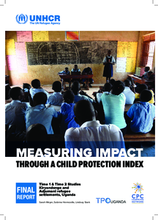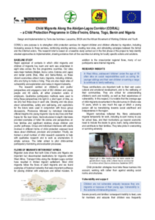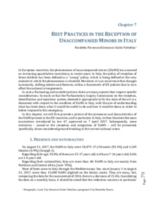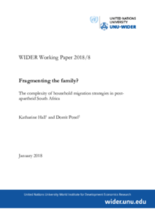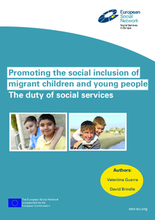Displaying 521 - 530 of 824
This report describes the research conducted in 2016 in Kiryandongo and Adjumani refugee settlements in Uganda, presenting a comparison of child protection system strength between 2014/5 and 2016, and child protection outcomes over the same time period.
This paper aims to investigate the protection framework established by the Family Reunification Directive for refugees who are unaccompanied minors.
This research brief is based on a baseline study carried out in the first phase of the Child Migrants Along the Abidjan-Lagos Corridor (CORAL) project to help identify situated approaches to implementation, drawing evidence from all five countries but aiming for locally specific actions and solutions.
This document from the U.S. National Child Traumatic Stress Network (NCTSN) identifies existing NCTSN resources related to traumatic separation, refugee and immigrant trauma, and best practices in trauma-informed care for refugee and immigrant children and families.
In this chapter from the Handbook of migration and globalisation, the authors examine the relationship between family, globalisation and migration through the lens of care, focusing specifically on the experiences of transnational families.
In this chapter from the The Twenty-third Italian Report on Migrations 2017, the authors provide a picture of the presences and characteristics of the unaccompanied minors present in the EU countries, and in particular in Italy, to then illustrate the main innovations introduced by law 47, approved on 7 April 2017.
The scope of this work is to link family reunification between static EU citizens and third country nationals to the current European immigration background in order to appreciate it as a way to channel safe immigration.
This paper presents a community based participatory research project, which adopted a photovoice approach with seven unaccompanied asylum-seeking children (UASC) living in foster care in the United Kingdom.
In this mixed methods study, the authors use nationally representative panel data to investigate migration patterns when viewed from the perspective of children.
This report aims to address some common and key themes emerging from a questionnaire and in-person meeting to discuss the role of the social service workforce in the inclusion of migrant children and young people.

